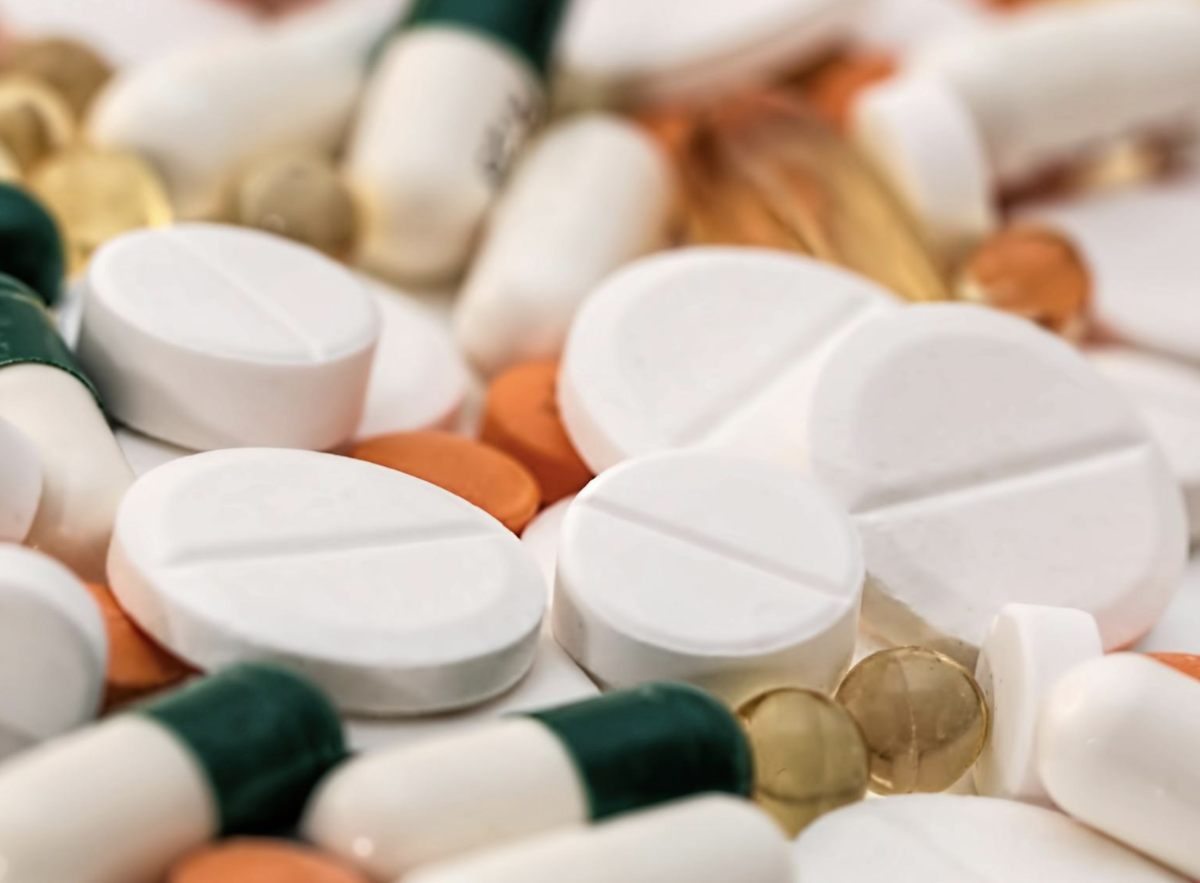
If you've been watching your prescription drug bills climb year after year, you're not alone. Last Friday brought news that might offer some relief: AstraZeneca became the second major pharmaceutical company to agree to Trump's drug pricing deal, following Pfizer's agreement in September.
This isn't just another Washington announcement that sounds good but changes nothing.
Under the deal, AstraZeneca will charge Medicaid patients "most-favored-nation" prices—the lowest rates offered in other high-income countries.
For context on why this matters: Americans pay nearly three times more for brand-name drugs than other developed countries.
What's actually in this deal for you
AstraZeneca said in a press release that it will allow eligible patients to purchase certain medications at discounts of up to 80% off list prices.
These discounts will apply to drugs for chronic conditions that many Americans know all too well—diabetes, asthma, COPD, and various cancers.
The deal also includes participation in a new website called TrumpRx.gov, where you can buy medications directly from manufacturers.
Here's the catch many news reports got wrong: the TrumpRx website will launch in January, not immediately.
That means if you're counting on relief through this platform, you'll need to wait until next year.
Also read: What Pfizer’s new deal could mean for prescription drug costs in America
The medications that matter to seniors
AstraZeneca isn't just any drug company—they make medications that many older Americans rely on daily.
Their cancer drugs, including Tagrisso for lung cancer, Lynparza for ovarian cancer, and Calquence for leukemia, brought in more than $7.5 billion in US sales last year.
They also produce respiratory medications like Symbicort and Airsupra for asthma and COPD.
Interestingly, AstraZeneca already offers its asthma inhalers for $35 a month under pressure from Senator Bernie Sanders' investigation into drug pricing that began early last year.
The manufacturing angle
This deal goes beyond just pricing.
AstraZeneca is investing $50 billion in US manufacturing by 2030, including a $4.5 billion facility in Virginia creating 3,600 jobs.
The Virginia facility will focus on cancer treatments and chronic disease medications—exactly the types of drugs many seniors depend on.
AstraZeneca also gets a three-year exemption from certain pharmaceutical tariffs as part of the deal.
Trump has been using tariff threats as a negotiation tool, and it seems to be working—at least in getting companies to agree to these arrangements.
Understanding Most Favored Nation pricing
Most Favored Nation (MFN) pricing means charging no more than the lowest price offered to any other developed country.
For example, if AstraZeneca sells a diabetes drug for $100 in the US but only $40 in Germany, MFN pricing would bring the US price down to $40.
Also read: Major cholesterol drug gets huge price cut, saving Americans hundreds each month
Also read:
The reality check experts are giving
Before you get too excited, policy experts are raising some important questions.
Experts question the real impact since Medicaid already receives the lowest US commercial prices through "best price" protections.
Rachel Sachs, a law professor at Washington University, pointed out a key concern: "Confidential agreements are not a good way to make public policy."
The details of what companies are actually committing to remain largely secret.
There's also the question of who can actually take advantage of direct-purchase discounts.
If you're on Medicare and have decent prescription coverage, paying cash might actually cost you more than using your insurance.
The direct-pay option seems designed for people who either lack insurance or have such high deductibles that cash prices become attractive.
"For almost everybody that's here, most of them are here because of tariffs."
Also read: Deprescribing medications: A safer approach to senior care
Looking at the bigger picture
This AstraZeneca deal is part of Trump's broader push to address what he calls "global freeloading" on American pharmaceutical innovation.
The administration argues that other countries use price controls to get cheap drugs while Americans subsidize the research and development costs.
The pharmaceutical industry has a different take.
Stephen Ubl, CEO of PhRMA, warned that importing foreign price controls could "result in less access to treatments and cures and reduced investment in manufacturing and R&D."
Also read: Common medications may be fueling a rise in deadly senior falls
What to watch for next
Trump indicated more deals are coming with other major drug companies.
Other large pharmaceutical companies are expected to reach similar agreements in the coming weeks.
Each new deal could potentially expand the range of medications available at reduced prices.
The key question is enforcement.
Unlike Medicare's drug price negotiation program, which has legal backing, these appear to be voluntary agreements.
What happens if companies don't follow through remains unclear.
What seniors should know about the AstraZeneca drug deal
- Most Favored Nation pricing applies to Medicaid patients, but may have limited impact since Medicaid already gets deep discounts.
- Direct-purchase discounts up to 80% will be available through TrumpRx website starting January 2025.
- Focus on chronic disease medications including diabetes, asthma, and cancer treatments.
- $50 billion manufacturing investment could improve drug supply chain security.
- More similar deals expected with other pharmaceutical companies in coming weeks.
- Real savings will depend on your insurance situation and specific medications.
Also read: Urgent recall affects 2 popular heart medications sold nationwide
The Medicare confusion factor
One important note: this deal primarily affects Medicaid—the program for lower-income Americans—not Medicare, which serves seniors.
Many people confuse the two programs, but they operate separately.
If you're on Medicare, you're already benefiting from the Inflation Reduction Act's drug pricing provisions, including the $35 monthly cap on insulin and upcoming negotiations on other high-cost medications.
However, the direct-purchase option through TrumpRx could still benefit Medicare recipients who hit coverage gaps or face high out-of-pocket costs for medications not covered by their plans.
What This Means For You
The bottom line? This deal represents a step in the right direction, but it's not a magic solution to high drug costs. The real test will be whether these voluntary agreements translate into meaningful savings at your local pharmacy—and whether the companies actually follow through on their commitments.
Read next:
- Medicare may soon cover medications for weight loss—here’s what to know about the proposed program
- Are the medications you take secretly raising your risk of heat stroke? Find out which ones to watch out for
- This common kitchen spice could be sabotaging your medications
What's your experience been with prescription drug costs? Have you found any strategies that help manage the expense? Share your thoughts and tips with fellow readers in the comments below—your experience might help someone else navigate these challenging waters.
Primary Source
https://edition.cnn.com/2025/10/10/politics/lower-drug-prices-trump-announcement
AstraZeneca reaches deal on drug prices with President Trump : Shots—Health News : NPR
Cited text: The White House unveiled its plan for TrumpRx and a similar · deal with Pfizer on Sept. 30.
Excerpt: AstraZeneca became the second major pharmaceutical company to agree to Trump
https://www.npr.org/sections/shots-...0/nx-s1-5571070/astrazeneca-trump-drug-prices
Trump unveils deal for AstraZeneca to cut Medicaid drug prices and join "TrumpRx" site—CBS News
Cited text: The AstraZeneca announcement came less than two weeks after Pfizer reached a similar deal to offer most-favored-nation rates to Medicaid patients and ...
Excerpt: AstraZeneca became the second major pharmaceutical company to agree to Trump
https://www.cbsnews.com/news/trump-astrazeneca-deal-drug-prices-medicaid-trumprx/
AstraZeneca agrees to lower drug prices for Medicaid under Trump administration deal
Cited text: AstraZeneca
Excerpt: AstraZeneca became the second major pharmaceutical company to agree to Trump
https://www.boston.com/news/busines...for-medicaid-under-trump-administration-deal/
Trump unveils deal for AstraZeneca to cut Medicaid drug prices and join "TrumpRx" site—CBS News
Cited text: Under the deal, AstraZeneca will offer its drugs to Medicaid patients at
Excerpt: Under the deal, AstraZeneca will charge Medicaid patients
https://www.cbsnews.com/news/trump-astrazeneca-deal-drug-prices-medicaid-trumprx/
AstraZeneca agrees to lower drug prices for Medicaid under Trump administration deal
Cited text: President Donald Trump made the announcement in the Oval Office with AstraZeneca CEO Pascal Soriot, who said that during tough negotiations to reach a...
Excerpt: Under the deal, AstraZeneca will charge Medicaid patients
https://www.boston.com/news/busines...for-medicaid-under-trump-administration-deal/
Trump announces deal with AstraZeneca aimed at lowering drug prices | CNN Politics
Cited text: AstraZeneca said in a press release about the deal that it will allow eligible patients with prescriptions for chronic diseases to purchase drugs dire...
Excerpt: AstraZeneca will offer eligible patients discounts of up to 80% off list prices for chronic disease medications
https://edition.cnn.com/2025/10/10/politics/lower-drug-prices-trump-announcement
Trump unveils deal for AstraZeneca to cut Medicaid drug prices and join "TrumpRx" site—CBS News
Cited text: The company said in a statement that it will offer drugs at up to an 80% discount for
Excerpt: AstraZeneca will offer eligible patients discounts of up to 80% off list prices for chronic disease medications
https://www.cbsnews.com/news/trump-astrazeneca-deal-drug-prices-medicaid-trumprx/
AstraZeneca agrees to lower drug prices for Medicaid under Trump administration deal
Cited text: The website’s landing page features two very large pictures of Trump and a promise that the site is “Coming Soon” in January 2026.
Excerpt: the TrumpRx website will launch in January 2026, not January 2025
https://www.boston.com/news/busines...for-medicaid-under-trump-administration-deal/
Trump announces deal with AstraZeneca aimed at lowering drug prices | CNN Politics
Cited text: AstraZeneca, though, already makes its asthma inhalers, including Airsupra and Symbicort, available for $35 a month in the US for certain patients – a...
Excerpt: AstraZeneca already offers its asthma inhalers for $35 a month under pressure from Senator Bernie Sanders
https://edition.cnn.com/2025/10/10/politics/lower-drug-prices-trump-announcement
Trump announces deal with AstraZeneca aimed at lowering drug prices | CNN Politics
Cited text: The company on Thursday unveiled a $4.5 billion investment in Virginia to manufacture a range of medicines including cancer treatments.
Excerpt: AstraZeneca is investing $50 billion in US manufacturing by 2030, including a $4.5 billion facility in Virginia creating 3,600 jobs
https://edition.cnn.com/2025/10/10/politics/lower-drug-prices-trump-announcement
AstraZeneca reaches deal on drug prices with President Trump : Shots—Health News : NPR
Cited text: In return for these commitments, the drug company will get a three-year exemption from certain tariffs.
Excerpt: AstraZeneca gets a three-year exemption from certain pharmaceutical tariffs as part of the deal
https://www.npr.org/sections/shots-...0/nx-s1-5571070/astrazeneca-trump-drug-prices
Trump announces deal with AstraZeneca aimed at lowering drug prices | CNN Politics
Cited text: And like Pfizer, AstraZeneca is getting a three-year reprieve on having certain tariffs levied on its pharmaceutical imports.
Excerpt: AstraZeneca gets a three-year exemption from certain pharmaceutical tariffs as part of the deal
https://edition.cnn.com/2025/10/10/politics/lower-drug-prices-trump-announcement
Trump unveils deal for AstraZeneca to cut Medicaid drug prices and join "TrumpRx" site—CBS News
Cited text: Most-favored-nation pricing could have a muted impact on Medicaid patients, experts say, because the program already has a statutory
Excerpt: Experts question the real impact since Medicaid already receives the lowest US commercial prices through
https://www.cbsnews.com/news/trump-astrazeneca-deal-drug-prices-medicaid-trumprx/
Trump unveils deal for AstraZeneca to cut Medicaid drug prices and join "TrumpRx" site—CBS News
Cited text:
Excerpt: Experts question the real impact since Medicaid already receives the lowest US commercial prices through
https://www.cbsnews.com/news/trump-astrazeneca-deal-drug-prices-medicaid-trumprx/
Trump's drug prices: AstraZeneca agrees to deal
Cited text: What
Excerpt: Other large drug companies are expected to reach similar deals in the coming weeks
https://www.axios.com/2025/10/10/trump-drug-prices-astra-zeneca






